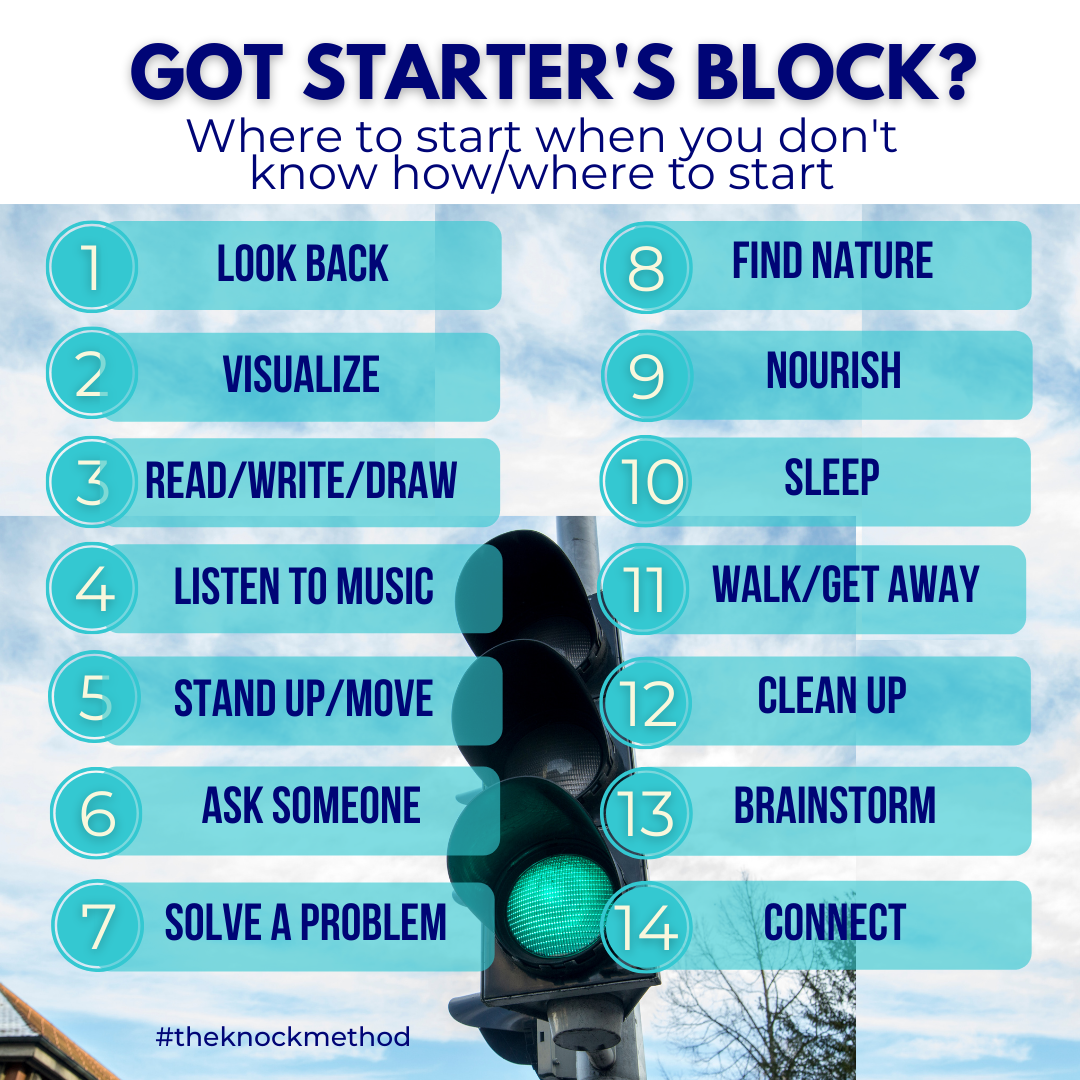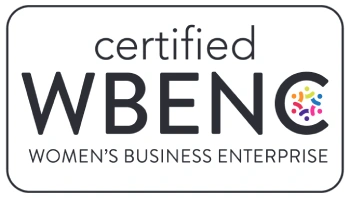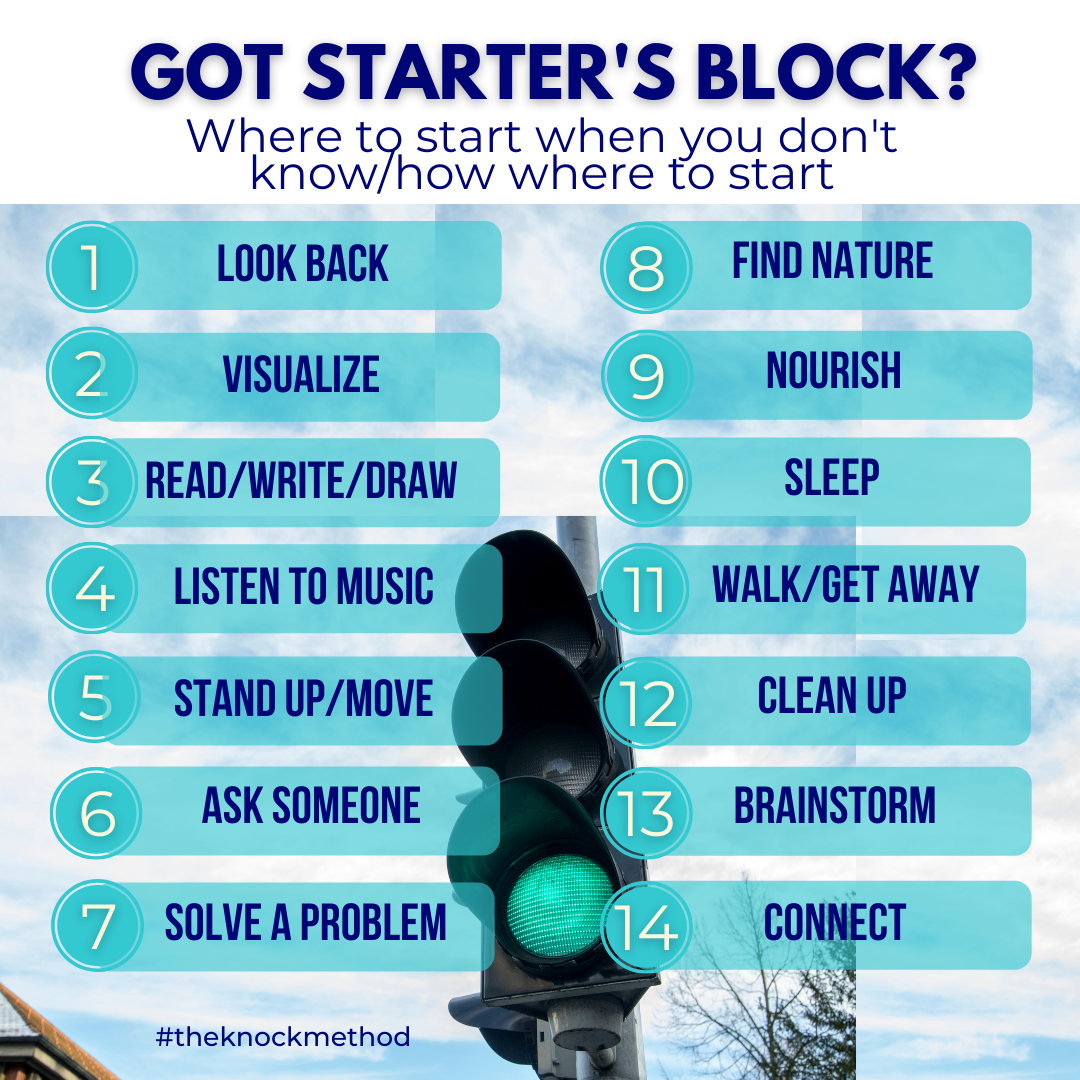Whether it’s the start of a new year, or you find yourself at a loss for where to begin, or begin again, to step forward, or to set direction, this post is for you. As a writer, I’ve found myself with “writer’s block”, you know, the blank page that just stares right back at you, then you get caught up in the fact that your page is blank and that prevents you from doing what it is you came to it to do — write.
I’ve also begun anew at jobs, in new cities, and with various endeavors and begun many a journey (literal or figurative) over the course of my life and career. One thing that makes us human is that we all experience overwhelm with more blank space than we know what do to with.
In other words, this is a familiar feeling to me, so I thought I’d share some ideas that have helped, and continue to help me, along the way when I’m paralyzed by possibility disguised as a blank page.

14 Things to Do When You Don’t Know Where to Start
You might find this list of 14 things to do if you find yourself struggling to find the motivation, identifying steps to take, or even setting direction and you feel lost.
Use it to find your way, and find your way back to a place where you can set yourself in productive, empowering, inspiring motion that fulfills you, or at least gives you some progress feels that you may crave or need.
- Look Back – There’s nothing like looking back to a place you’ve been that you no longer want to be in to give you a kick in the pants to go forward! Or, maybe looking back on your previous notes, ideas, experiences will give you some indicators of future direction.
- Visualize – For those who want nothing to do with the past and only want to look ahead, or for those who need some direction to decide where you’re going, visualize. This could mean taking a walk and picturing in your mind a scene or details about what you would like or a desired outcome in the future. Or, it could mean clipping out magazine pictures and words and pasting them onto a poster board or piece of paper to serve as your vision board to guide you over time. Maybe it’s drawing a picture or thinking about a scene in a movie or TV show that speaks to you. Dream, and it could become.
- Read/Write/Draw – Turn to a favorite book, or a new book for inspiration and ideas or to give your mind a break from thinking too hard. Write down words, a to-do list, a wants list, a don’t-wants list. Take a pen or pencil and actually put something on paper. This has been known to bring ideas to life, literally in a tangible way that you can see and touch.
- Listen to Music – Sometimes a lyric, a rhythm, or a tune can inspire a feeling, or spark an idea. It can change your environment and influence your mood. Sometimes when the page is too blank or the room too quiet, adding some music can bring the change you needed.
- Stand Up/Move – Your brain works better when you’re active, some research suggests, because you’re increasing the oxygen it receives. Stand up, shift your posture and position, stretch, or go for a walk. You may think better with the steady rhythm of your steps in the background, and forward motion in your body may bring about forward motion in your world.
- Ask Someone – If you find yourself stuck, or unsure of where to begin, ask someone for ideas, for help, or advice on how they started something similar for inspiration. Sometimes others who have been there give us the comfort we need to know that we’re not alone on our journey or with a similar endeavor, and they may even have advice that could save you some steps, motivating you to start on Step 2 or 3, instead of taking that first seemingly-monstrous first step.
- Solve a Problem – If you’re not sure where to start, identify problems you want to fix or find a solution for. The bigger the problem, the more motivation you may have to identify and take actions to solve them.
- Find Nature – Put your feet in the grass, touch the snow, walk outside, breath in the ocean air, buy flowers, water your plants, notice the nature around you, light a candle to bring the element of fire and life to your space. Nature grounds, invigorates, and re-centers.
- Nourish – Have you had a glass of water today yet? Have you given your body and mind food and nourishment that helps you function? Maybe you’re missing the ingredients that will give you the energy and inertia to go from still to movement.
- Sleep – While it may sound silly to sleep when you haven’t gotten anything done yet, sleep (even a 20 minute power nap) may reset your day or reset you. Feeling refreshed will help to generate ideas. It’s hard to begin when you haven’t filled this need of rest.
- Walk/Get Away – Walking moves your body, helps your blood flow, provides exercise, and lots of good talks and ideas come about from the steady motion of walking. Similarly, travel, or take a short drive to a neighboring town. Changing your environment can introduce your senses to new things/people/places, and new ideas may emerge.
- Clean Up – Whether it’s cleaning up your work space and your desk, reorganizing your bookshelf, tossing old post-it notes that no longer serve you or are needed, washing dishes, or hopping in the shower, taking control and clearing the clutter around you can help clear your mind for new ideas and direction to come in.
- Brainstorm – When you’re looking for the idea, you may be so overwhelmed or feel the fear of failure that you might not find it, and that can become debilitating. Start a brainstorming list to take the pressure off finding the best idea right away and jot down any idea that comes. Then, categorize or group similar ideas, and see which ideas call to you the most. Then, you have an idea of where to begin.
- Connect – There’s nothing that gets the juices flowing more than phoning a friend, setting up a coffee chat with a colleague, asking for advice, finding a mentor, hugging your friend, family, or partner. Connection gives you a mood boost, makes you feel needed, reconnect with purpose, improves your health like blood pressure and heart rate, and gets you out of your own head and helps you refocus on who matters to you and around you.
Want to learn more about the power of connection in your career and at work? Grab your copy of my career development bestseller: KNOCK: How to Open Doors and Build Career Relationships that Matter. Sign up for The Knock Method VIP email list for tips on how to connect more meaningfully at work and upcoming workshops and events, or contact me to bring a workshop on cultivating connection and inclusion at work to your organization.


